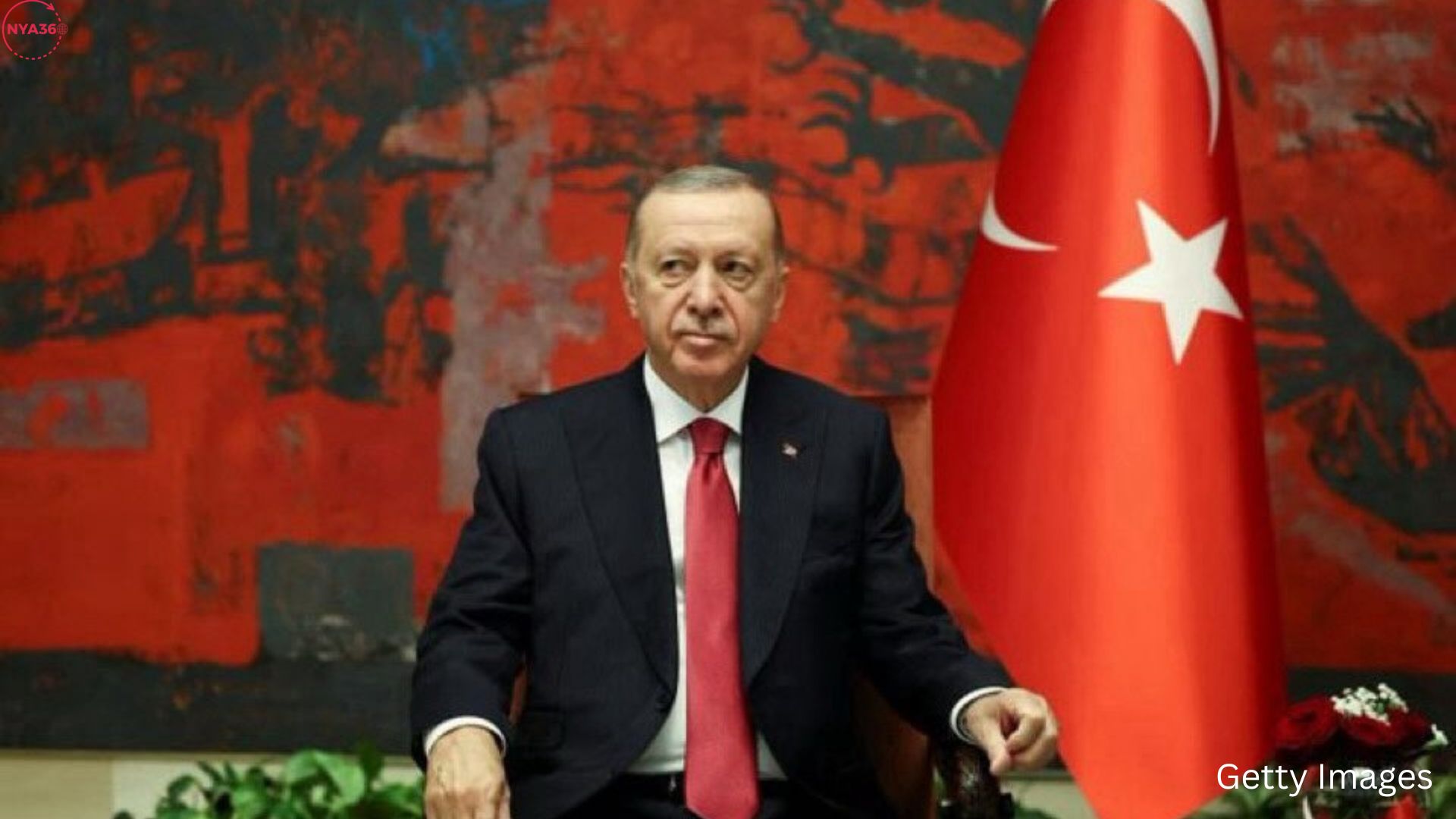A rift has opened up between Israel and Turkey in recent days, and Turkey is taking steps to sever diplomatic ties with Israel in response to what it perceives as Israeli aggression in Gaza and Lebanon. Recep Tayyip Erdogan, president of Turkey, has taken a strong stand by openly denouncing Benjamin Netanyahu, prime minister of Israel, calling him “the enemy of humanity.” Concerns have been raised internationally by the inflammatory rhetoric of Turkey’s military minister and threats of greater escalation. This has prompted debate about the implications for regional stability and international relationships.
Turkey-Israel Relations: A Historical Context
Especially in the areas of trade, tourism, and military cooperation, Turkey and Israel’s relationship has always been intricate and advantageous to both countries. Turkey, a country with a Muslim majority, recognized Israel formally in 1949, and relations between the two countries remained largely cordial until the turn of the millennium. But changes in Turkey’s foreign policy started to emerge as the country’s political environment changed, especially with Erdogan at the helm and his alignment with conservative, pro-Islamist beliefs.
Despite frequent disagreements with Israel over Gaza policy, Erdogan’s administration has positioned itself as a strong supporter of Palestinian rights. A critical breakdown in ties occurred in 2010 during the Mavi Marmara incident, when Israeli forces stormed a Turkish flotilla that was trying to break the Gaza blockade. Nine Turkish civilians were killed in the attack. Both countries frequently compete for regional dominance, and although some diplomatic cooperation has persisted over the last decade, relations have remained chilly due to Erdogan’s continuous criticism of Israel.

The Significance of Erdogan’s Recent Remarks
Erdogan recently spoke out against Israel’s activities in Gaza, using strong language to describe Netanyahu and urging the Muslim community to stand together in opposition. Erdogan has escalated his rhetoric in recent weeks, despite Turkey’s longstanding support for Palestinian interests. To garner regional support that would pit Turkey against Israel and perhaps bolster its power among neighboring states, he has called for unity among Muslim-majority countries, echoing his vision of Turkey as the leader of the Muslim world.
On the other hand, Erdogan’s remarks can help strengthen his political base in Turkey. Many in Erdogan’s conservative base support his outspoken posture against Israel in the face of economic difficulties, internal discontent, and criticism from the opposition. By denouncing Israel’s activities, Erdogan can gain nationalist support and present himself as a courageous leader ready to face formidable enemies on the Muslim world’s behalf.
Israel and Turkey’s Strategic Decisions
The animosity between Israel and Turkey indicates larger geopolitical trends, most notably the struggle for hegemony in the Eastern Mediterranean. Turkey’s recent territorial claims expansion in the Mediterranean has resulted in conflicts with Greece, Cyprus, Israel, and energy resources. Because of this, Turkey is becoming closer to regional adversaries like Iran and Russia, and Israel has reinforced its connections with Cyprus, Greece, and Arab nations like Bahrain and the UAE as a result of the Abraham Accords.
The possible diplomatic isolation of Turkey and the deepening of Israel’s cooperation with the Gulf states are two outcomes of a regional realignment that could result from Turkey’s possible cutting off relations with Israel. Meanwhile, Turkey’s support for Palestinian and Lebanese causes may increase its clout among Middle Eastern anti-Israel groups.

Preserving regional security and military dominance is of utmost importance to Israel. Although there has been no outright threat from Israeli officials toward Turkey, they have made it clear that they are prepared to defend their interests if threatened. A direct clash between Israel and Turkey would undoubtedly involve other international interests, adding to the already precarious regional balance, due to Israel’s considerable military capabilities and geopolitical relationships.
Is a Wider Conflict Possible as a Result of Turkey-Israel Tensions?
It is deeply concerning that Turkey’s defense minister has raised the possibility of an Israeli strike on Turkey, which may lead to a wider conflict. The likelihood of direct hostilities between Israel and Turkey is low, but proxy wars or regional confrontations are always a possibility. Indirect disputes between Iran and Turkey could escalate in Lebanon due to Hezbollah’s expanding prominence and cooperation with pro-Turkey and Iran factions. The two governments are sponsoring opposing parties and are competing for dominance.
Because of their respective regional interests, the US, NATO, Russia, and Iran are likely to be involved in any escalation between Turkish and Israeli soldiers. Given the strategic importance of the Eastern Mediterranean for oil and gas lines, a confrontation might disrupt global energy supply, potentially leading to higher energy prices and market instability.

Powers and Alliances on a Global Scale
Tense relations between Turkey and Israel pose a special challenge for NATO. Turkey has been at odds with NATO interests in recent years due to its foreign policy that is becoming more independent and its affiliation with nations like Russia and Iran. Despite this, the alliance’s defense assurances have been beneficial to Turkey as a member. The United States, an important NATO member, and Israel’s main ally, would encounter conflicting responsibilities in the event of a hypothetical war with Israel, further complicating matters for NATO.
Since the US has long played the role of mediator in the region, any escalation of tensions between Israel and Turkey would put the US in the precarious position of having to defuse the situation without endangering either ally. As Turkey aims to increase its regional dominance, Russia might provide diplomatic or military assistance, taking advantage of any NATO split, to bolster its influence in the Middle East.
Similar to other countries, China has shown interest in the area, mostly due to its Belt and Road Initiative and infrastructural developments. To protect its investments and keep its markets open, China may step up its diplomatic efforts in the event of an escalation that jeopardizes regional stability or trade routes.
Negotiation, De-escalation, and Common Ground: Moving Forward
An escalation would be disastrous for Turkey and Israel, notwithstanding how tight things are now. The best way to settle disagreements and avoid war is via diplomatic means. To achieve his domestic political goals without exposing Turkey to the dangers of a military conflict, Erdogan might prioritize diplomatic solutions that strengthen Turkey’s dedication to Palestinian rights. Given the various fronts it must contend with, Israel also has an interest in preserving regional stability.
Turkey and Israel should work together, and the international community as a whole, including the US, Russia, and NATO, should push for this. Tensions can be de-escalated and cooperation fostered if these major powers highlight similar objectives including counterterrorism efforts, economic growth, and regional stability.
Mediated discussions on matters such as resource sharing in the Eastern Mediterranean could be a fruitful diplomatic route. One way to reduce tensions and encourage collaboration is to set up multilateral conferences where regional actors like Israel, Turkey, and others may discuss maritime rights and energy resource access. Also, if the United States gets back into the region, it might help pull Israel and Turkey together around common security objectives.
Turkey and Israel’s Future Relationship
The geopolitical complexity of the Middle East is illustrated by the current situation between Israel and Turkey, which stems from the intersection of national interests, religious differences, and historical grievances. Not only does Erdogan support Palestinian interests, but he is also trying to strengthen Turkey’s position as a leader in the Muslim world by criticizing Israel. At the same time, Israel’s aim to establish relationships with neighbors who share its values and its dedication to maintaining national security and stability in the area is unwavering.
Although a confrontation is still quite unlikely, the dangers of proxy wars and regional conflicts must not be ignored. International diplomacy must remain a top priority, to resolve the problem through channels that acknowledge and address the valid concerns of both Israel and Turkey. To prevent additional instability and provide a foundation for a more peaceful future, the region must maintain diplomatic efforts.
Follow us on social media: Instagram, Threads & Twitter X @nya360_ YouTube & Facebook @nya360.





